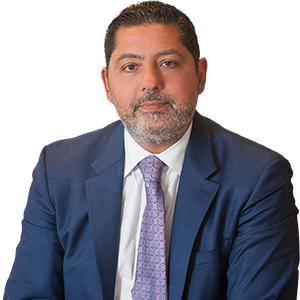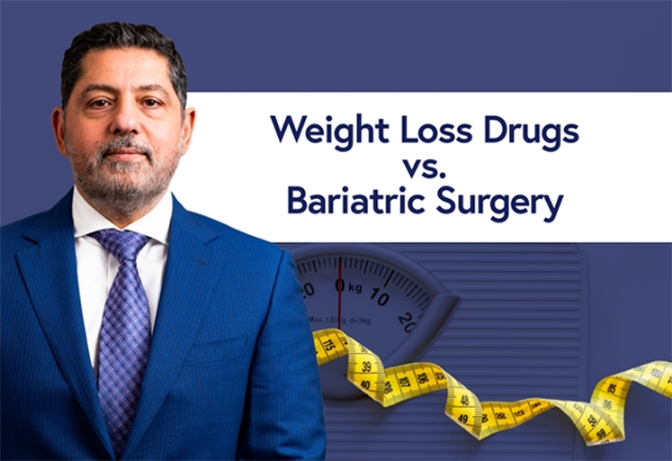Weight Loss Drugs vs. Bariatric Surgery – Which is Right For You?
If you’re trying to lose weight and finding it difficult, you may have considered taking medications or undergoing bariatric surgery. Both of these... read more
Call Us Today (732) 640-5316
E-Waiting Room
Did you know the average human swallows at least 900 times per day? The seemingly simple reflex is actually very complex — eating and swallowing involves intricate coordination between your brain, nerves, and throat muscles.
The esophagus, an 8-inch-long tube that connects your throat to your stomach, is also sensitive to injury. Damage to the esophageal muscles could prevent the lower esophageal sphincter, or LES, from relaxing properly. This could result in achalasia, a rare swallowing disorder that makes it difficult for food and liquid to pass into your stomach.
Achalasia is one of many different swallowing disorders, all of which are a form of dysphagia, a medical term used to describe difficulty swallowing. Dysphagia can happen to anyone, but it’s most common among elderly, babies, and people with neurological issues.
Swallowing disorders affect the swallowing apparatus, an integrated system that consists of the back of the throat (pharynx), the upper esophageal sphincter, the esophagus, and the lower esophageal sphincter (LES). Each component works together to transport food, drink, and saliva from your mouth to your stomach.
If any part of the swallowing system is damaged, a swallowing disorder can occur. In most instances, the damage is a result of muscles and nerves not working properly. Neurological disorders such as Parkinson’s disease, multiple sclerosis, or stroke can cause swallowing disorders, in addition to certain medications, brain injuries, tumors, or cancer.
Swallowing disorders can be characterized by the following symptoms:
Rare swallowing disorders such as achalasia can be misdiagnosed, as the symptoms are similar to other digestive disorders. A full examination by a head and neck surgeon, or otolaryngologist, is necessary in order to diagnose achalasia and other swallowing disorders.
Some swallowing disorders can be treated by making changes to your lifestyle. Reducing your intake of acidic foods, eliminating alcohol, caffeine, and tobacco, and avoiding night cravings can all help treat swallowing disorders.
Swallowing disorders that occur as a result of esophageal damage may require surgery and/or oral medication. Achalasia, for example, is best treated with a peroral endoscopic myotomy (POEM).
POEM is a new, minimally-invasive endoscopic treatment for swallowing disorders, most commonly for achalasia. The procedure involves the use of an endoscope, a flexible tube with an attached camera, to see inside the esophagus. The surgeon will view the images on a nearby monitor and use the endoscope to navigate the interior of the esophagus. Then, several small incisions are made to loosen tightened muscles near the lower esophageal sphincter and restore function between the esophagus and stomach.
Read more: Misconception: Those who have metabolic and bariatric surgery regain weight
In the past, achalasia was traditionally treated with a Heller Myotomy. While mostly effective, the treatment is complicated and requires a number of incisions. By contrast, POEM requires no external incisions — the endoscope is inserted through the mouth, which greatly reduces the complication rate and minimizes potential discomfort and pain. The procedure also features a fast recovery time, due to the minimally-invasive nature of the endoscope.
Advanced Surgical and Bariatrics, the premier weight loss center in New Jersey, is one of the first practices in the Northeast to offer the POEM procedure. Our team of surgeons is dedicated to ongoing training in POEM to stay up-to-date on advancements in technology and ensure thorough expertise in the procedure. We’re proud to maintain the lowest complication rate for bariatric surgery in New Jersey.
Wondering if you’re a good candidate for POEM? Contact our weight loss center in Somerset, NJ to schedule a consultation. Our team of bariatric surgeons are happy to answer your questions — your health is our goal!

Dr. Ragui Sadek is a premier surgeon who established a state-of-the-art and one of the safest bariatric surgery programs in the state. Dr. Sadek has fellowship training in both laparoscopic/bariatric surgery and surgical trauma/critical care, allowing him to safely perform complex surgeries on patients who have been turned down by other practices. As a Clinical Assistant Professor of surgery at RWJ Medical School & the Director of bariatric surgery program at RWJ University Hospital, Dr. Sadek offers a cutting-edge range of laparoscopic, robotic, & bariatric surgical procedures with a complication rate substantially below the national average.
Dr. Sadek is a Clinical Assistant Professor of Surgery at Rutgers-Robert Wood Johnson Medical School and a Fellow of the American College of Surgeons. Having performed more than three thousand advanced surgical procedures, Dr. Sadek has established a strong patient satisfaction rate and a solid reputation among the surgical community and is renowned as a top physician in his field by International Association of Healthcare Professionals. As a board-certified surgeon, he holds affiliations with the American Society of Metabolic and Bariatric Surgery and the Society of American Gastro Endoscopic Surgeons. More about Dr. Sadek
Stay current with Advanced Surgical & Bariatrics of New Jersey

If you’re trying to lose weight and finding it difficult, you may have considered taking medications or undergoing bariatric surgery. Both of these... read more

Are you frustrated with your inability to lose weight? Tired of being trapped in an endless cycle of yo-yo dieting, over-exercising, cleanses, and... read more